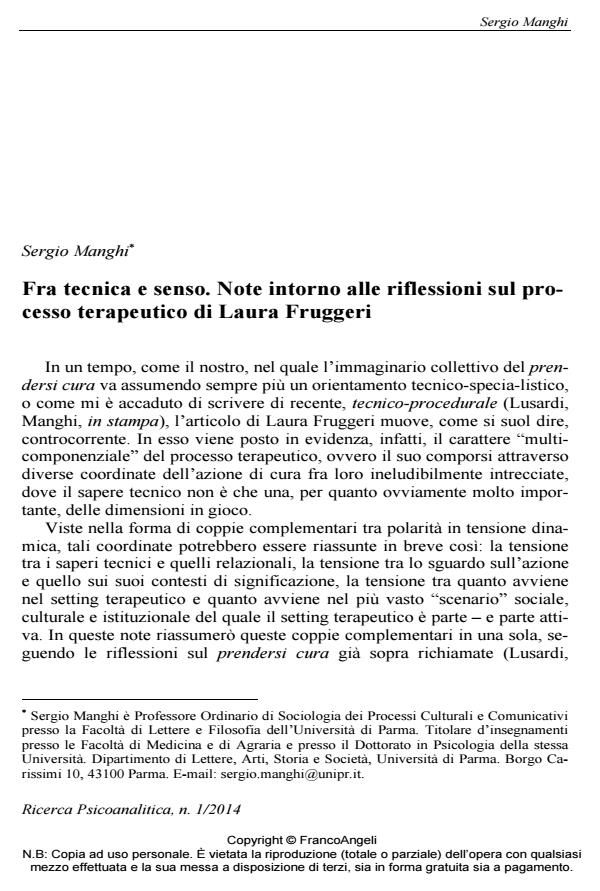Between technique and meaning. notes on the reflections on Laura Fruggeri’s therapeutic process
Journal title RICERCA PSICOANALITICA
Author/s Sergio Manghi
Publishing Year 2014 Issue 2014/1
Language Italian Pages 8 P. 23-30 File size 651 KB
DOI 10.3280/RPR2014-001003
DOI is like a bar code for intellectual property: to have more infomation
click here
Below, you can see the article first page
If you want to buy this article in PDF format, you can do it, following the instructions to buy download credits

FrancoAngeli is member of Publishers International Linking Association, Inc (PILA), a not-for-profit association which run the CrossRef service enabling links to and from online scholarly content.
In a period when the collective image of taking care is moving in the direction of a technical-specialist orientation, Laura Fruggeri’s paper goes against the flow and stresses the "multi-skill" character of the therapeutic process. This implies a description of its formation with the help of different intertwining coordinates of taking care, where technical knowledge is only one even if extremely important dimension. Seen as couples of dynamically strained poles, these coordinates could be summarized in the following way: strain between technical and relational knowledge, strain between the view of action and its meaning contexts, strain between what takes place in the therapeutic setting and what takes place in the wider social, cultural and institutional "scenario" of which the therapeutic setting is part - an active part. The paper summarizes these complementary couples in a single one: the technical-procedural/symbolic-relational couple.
Keywords: Self-reflection, technical skills, relational skills, contextualization, self-reflection, social awareness
Sergio Manghi, Fra tecnica e senso. Note intorno alle riflessioni sul processo terapeutico di Laura Fruggeri in "RICERCA PSICOANALITICA" 1/2014, pp 23-30, DOI: 10.3280/RPR2014-001003